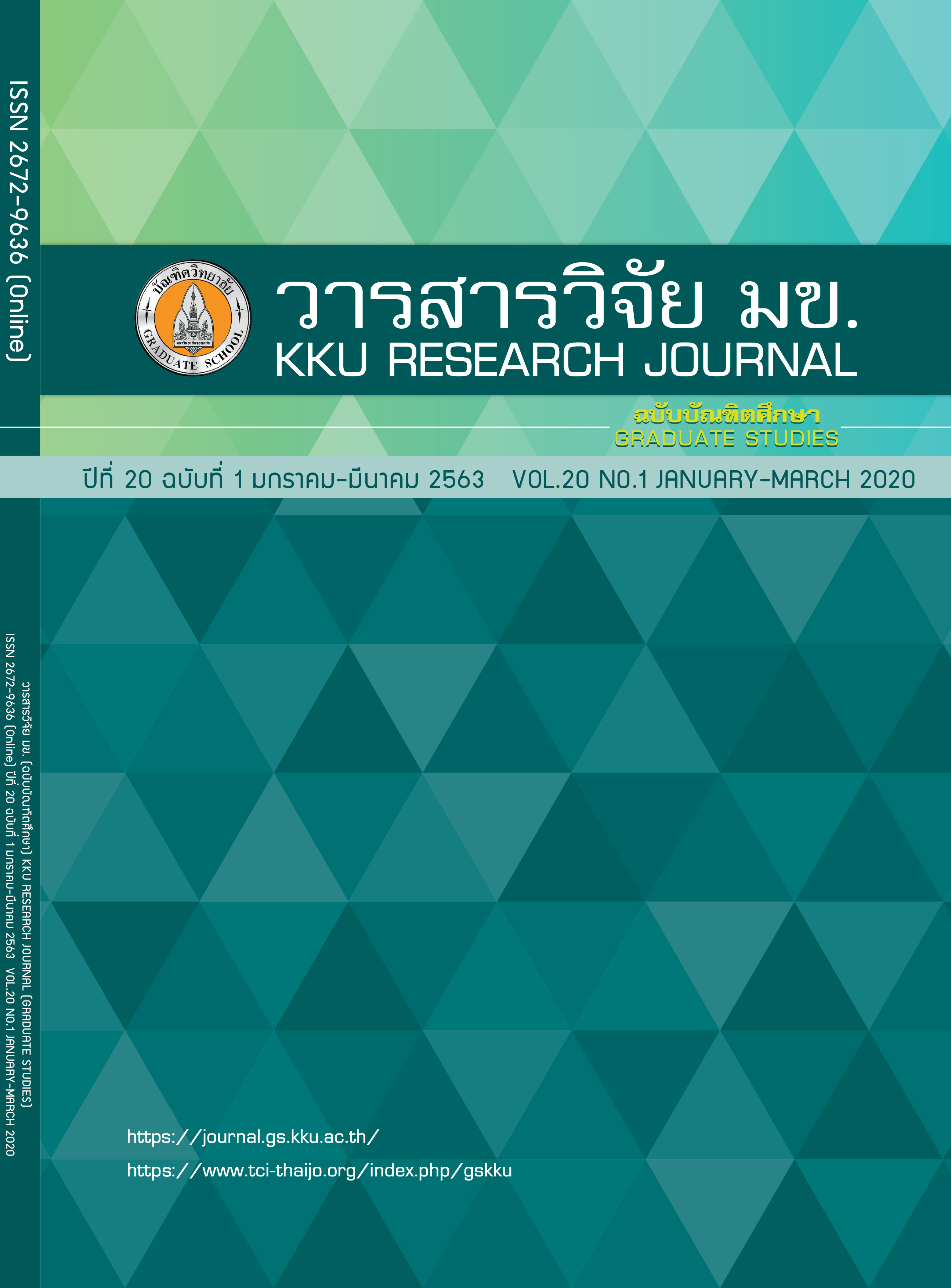Perceptual Latent Variables Model of Bike Sharing System in Khon Kaen University
Keywords:
Bike sharing system, Latent Variable Models, Non-bike culture communityAbstract
Latent variables are one of the important variables that help to understand the use of bike sharing system operated on Khon Kaen University in 2018. This study develops latent variables and latent variable model. A sample of 396 participants were administered a questionnaire survey. Indicators were grouped using Exploratory Factor Analysis (EFA) technique. MIMIC Models were used to develop the latent variable model.The results showed 3 latent variables (bike characteristics, bike accessibility, and safety) from 13 user’s perception indicators, developed from their importance and performance. The developed latent variables were significantly influenced from the 3 user characteristics variables (age, sex, and frequency of use). The findings help to understand the relationship among user characteristics, latent variables, and user’s perceptions. They provide useful information for the planner to promote bike sharing system in the non-bike culture community.
References
Fernández-Heredia Á, Jara-Díaz S, Monzón A. Modelling bicycle use intention: the role of perceptions. Transportation (Amst). 2016;43(1):1–23.
Ben-Akiva M, Walker J, Bernardino AT, Gopinath DA, Morikawa T, Polydoropoulou A. Integration of Choice and Latent Variable Models. In Perpetual Motion. 2007;(1):431–470.
Rietveld P, Daniel V. Determinants of bicycle use: Do municipal policies matter? Transp Res Part A Policy Pract. 2004;38(7):531–550.
Hunt JD, Abraham JE. Influences on bicycle use. Transportation (Amst). 2007;34(4):453–470.
Efthymiou D, Antoniou C, Waddell P. Factors affecting the adoption of vehicle sharing systems by young drivers. Transp Policy [Internet]. 2013;29:64–73. Available from: http://dx.doi.org/10.1016/j.tranpol.2013.04.009. http://dx.doi.org/10.1016/j.tra.2016.04.006.
Kaplan S, Manca F, Nielsen TAS, Prato CG. Intentions to use bike-sharing for holiday cycling: An application of the Theory of Planned Behavior. Tour Manag [Internet]. 2015;47:34–46. Available from: http://dx.doi.org/10.1016/j.tourman.2014.08.017.
Verma M, Rahul TM, Reddy PV, Verma A. The factors influencing bicycling in the Bangalore city. Transp Res Part A Policy Pract [Internet]. 2016;89:29–40. Available from: http://dx.doi.org/10.1016/j.tra.2016.04.006.
Motoaki Y, Daziano RA. A hybrid-choice latent-class model for the analysis of the effects of weather on cycling demand. Transp Res Part A Policy Pract. 2015;75(February):217–30.
Hair JF, Jr. Black WC, Babin BJ, Anderson RE, Tatham RL. Multivariate data analysis. (6thed). New Jersey: Prentice Hall. 2006.



